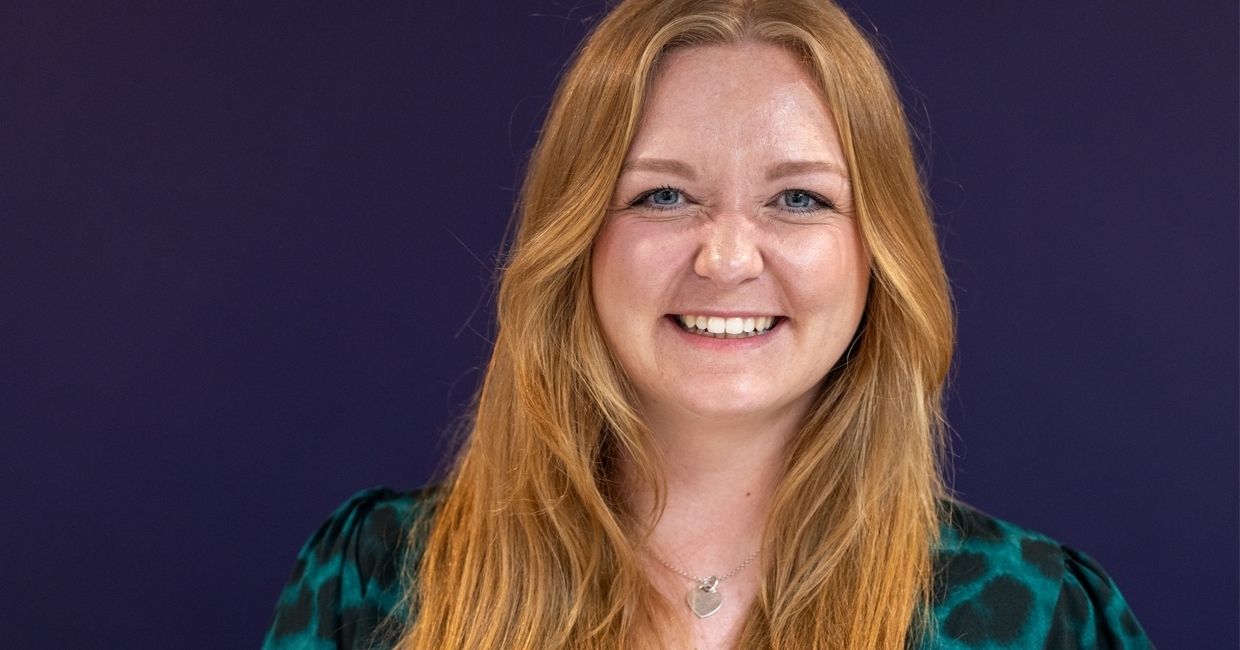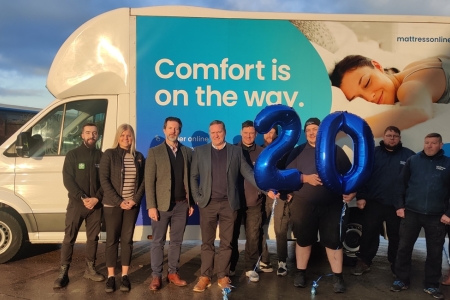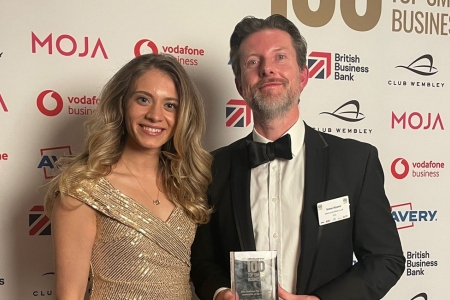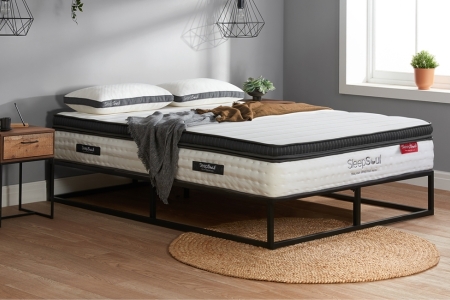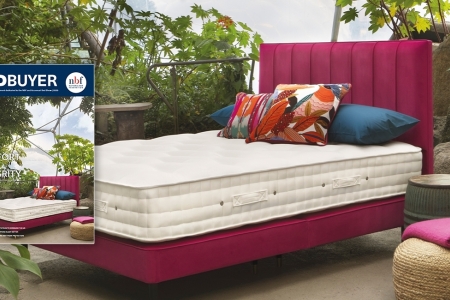Hannah started her career working on a two-year research project with Silentnight and the University of Central Lancashire, exploring the biomechanics of sleep and how the mattress can support the body to aid recovery throughout the night. She then continued to work with Silentnight, before returning to university to study Sleep Medicine at the University of Oxford. More recently, Hannah joined Mattress Online as head of sleep science, and now works to help consumers understand the benefits of a good night’s sleep and having a quality mattress.
How might a child describe what you do?
The lady that jumps on beds!
What’s the biggest long-term challenge you face?
Helping everyone sleep better – it’s more difficult than you first think. There are myriad reasons why people don’t sleep very well, and as much as I’d love to say a new mattress will solve everyone's problems, we know that just isn’t true. There’s multiple different sleep disorders, life-related issues such as stress, work and home life, and then personal issues, which means a mattress probably won’t fix everyone’s sleep in the long term.
However, a good quality mattress is the foundation for a good night’s sleep, and if we can ensure everyone has the right sleeping environment, it's a good start. Education is key – with ever-developing research into sleep and products which can help you sleep better, there’s always something to share with our staff, our consumers, or anyone that will listen. By understanding your own sleep and your unique sleeper needs we can eventually help everyone get a good night’s sleep.
If you had 10 x your working budget, what would you spend it on?
Oh wow! I’d have an entire lab that would test everything from compliance and sleeper benefits, to actual sleep tests such as polysomnography. We’d assess mattresses and materials and understand if and how they could help people sleep better. We would look at everything from the biomechanics of sleep to sleeping patterns, and then be able to assess how this actually worked in a real-life setting.
Whilst we would be focusing on products, we’d also be able to help assess people with potential sleep disorders to get them the help they need. We’d work with universities all over to help research and understand sleep that little bit better.
Finally we would fund/run an education programme to help people understand sleep better, allowing people to go into every single school and help teach children why sleep is so important so they can understand this from a young age. We would adapt this for adults and provide sessions within work forces too.
In short, I’d still be helping people sleep better, just on a much bigger scale … I might need more than 10 x my budget for this though!
What would be the title of your autobiography?
Erm … something punny, like Let me tell you a Bedtime Shore-y.
What does ‘work/life balance’ mean to you?
Succeeding in both. It would be pushing myself in work and seeing projects we are working on making a difference, but also being able to switch off from that easily on a weekend and enjoy my time at home with my family and friends (although I do love my work, and the lines can sometimes blur as I discuss work-related things at home such as little wins and projects I’m excited about).
Who’s been your most influential professional mentor?
Can I cheat here and have two? Angela Moran and Danny Blackmore from Silentnight are two people who took me under their wings when I first started in the world of beds. Their experience, forward thinking and constant support helped me pave my unique path in the industry and gives me the confidence to do what I do now.
What advice would you give your younger self?
Take every opportunity, no matter how random it may seem at the time. I started out studying in sports and now work in the world of sleep, an avenue I didn’t know existed until I was surrounded by mattresses!
What’s been your best day in business to date?
In my current role I would say the recent event we held at the Doncaster store, where I spoke about the importance of sleep, what happens when we sleep and some key factors that affect this, with a focus on how the mattress plays a key role. It was great to meet and chat with lots of different people and help them understand their own sleep a little better. We also got to hear about the fantastic work that is happening in South Yorkshire to ensure every child has a bed.
However, something I will not forget in a while is attending and presenting my findings at the World Sleep Society Conference in Vancouver. It was the furthest I’ve ever travelled, I did it by myself and presented findings on a global stage. I think it was at this point, listening to others discuss their research, where I fell in love with sleep.
What’s the biggest myth about our industry?
Spring counts! Come on, we all know more springs don’t always mean better! Every person is different, we should pair the right person with the right product. If that person would suit a product with less springs, then that is the best product for them and that is what we should be selling them.
What should everyone in our industry either stop or start doing?
Everyone should learn that little bit more about sleep. The products we make can have a direct impact on our sleep, so the more we understand sleep, the better we can point people to the right products to help them make the most of their sleep.
Where do you see the industry going in the next 5-10 years?
I think there’ll be three main areas in which we’ll see some sort of change over the next few years, the first being AI. AI is changing how people shop and how they research their products, giving them access to more information easily. This leaves consumers asking more questions and ultimately having a greater understanding of products, so we will have to adapt to these changes.
Second is sleep. People are starting to understand the world of sleep more – Covid was a major driver in this as it altered people’s sleep, some for the better but mostly for the worse. This drove people to try to understand why, leading to an increase in the health and wellbeing sector which is growing and growing.
Finally, sustainability. We have to do better. Our products are made to last several years, so what we are putting into the market today will be affecting the sustainability chain for years to come. Throughout the next few years we need to see an increase in mattress recycling in the UK, we need to see an increase in the circularity of the materials we use in the UK, and we have to work together to find solutions for this.
What question do you wish we’d asked? How would you have answered?
Q: What is your most frequently asked question?
A: It’s normally along the lines of “I always wake up in the middle of the night, how can I stop it?” Everyone then gets surprised that I guess the right time they wake up, between 3-4am.
The answer – we sleep in cycles of approximately 90 minutes, drifting between deep sleep where we struggle to wake anyone up, and lighter sleep which is easy to wake up from. If you wake up five times throughout the night and get back to sleep easily, then it’s perfectly fine.
It’s when we struggle to get back to sleep that we have a problem. The reason people often have the 3-4am wakening is the first half of sleep is predominantly deeper sleep and the second half of sleep is light sleep, therefore we tend to see the main wakening happening at this transition (it's often where people get up to use the loo). Again, so long as we get back to sleep easily, then this is not an issue at all and is perfectly normal.


